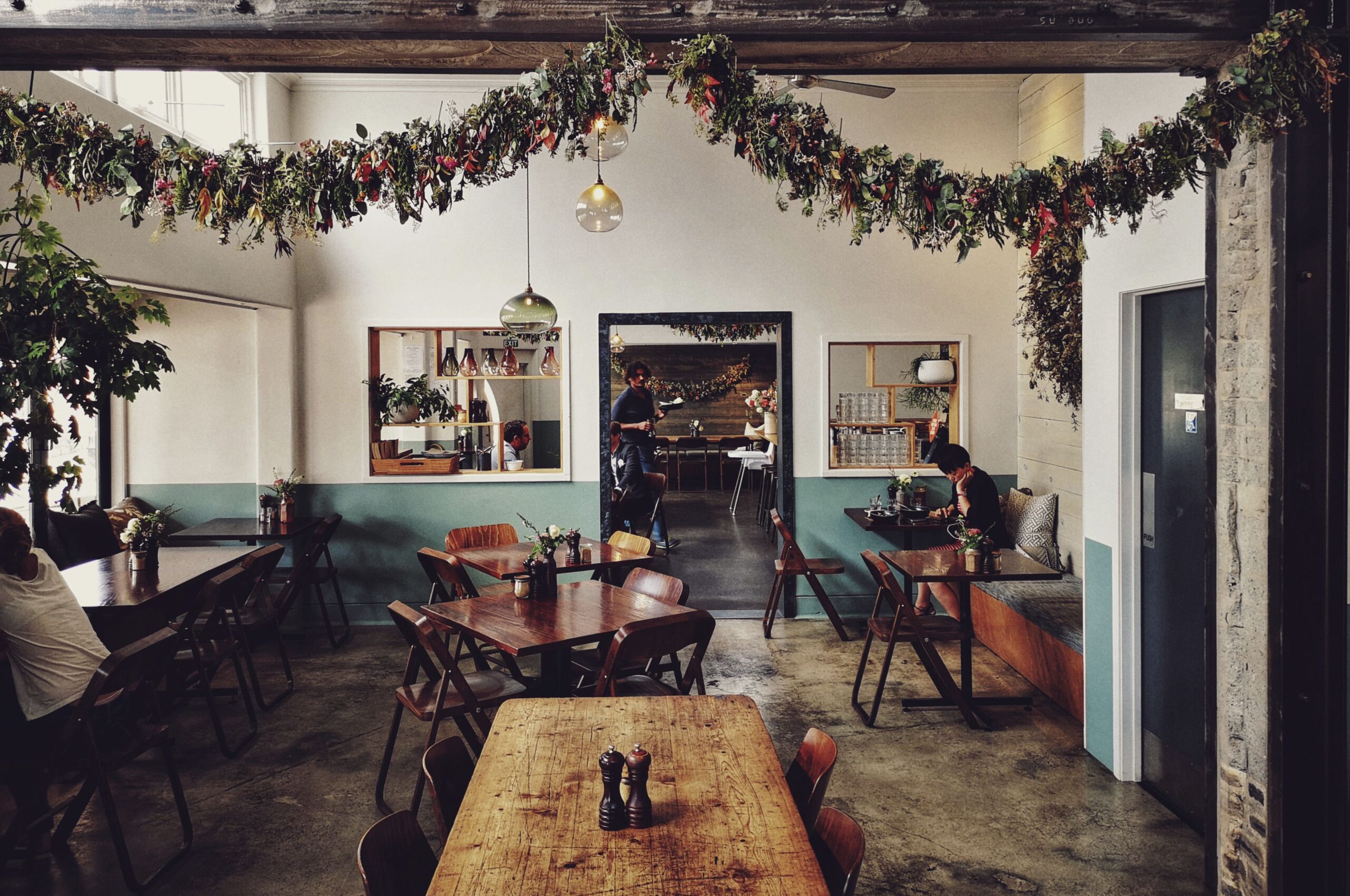Melissa Clark-Reynolds turned her own life around—twice—as well as a few failing companies. She’s convinced hundreds of Kiwis to do something about climate change, and now she wants you to stop shopping. Annabel McAleer meets the entrepreneur dynamo
Expectations aren’t high for kids raised in poverty and violence, or girls who get pregnant at 17. Nobody expects them to make a million bucks, save the planet and launch the next Facebook—but a lot can change in one lifetime. Meet Melissa Clark-Reynolds
Photography by David Baird
From rags to riches to environmental crusader—Melissa Clark-Reynolds’ life has been a heck of a rollercoaster ride so far, and there’s still no stopping her. In 2007 the entrepreneur millionaire tossed it all in for Al Gore. Eighteen months later she’s back in business, and on another mission: to help us all stop buying so much crap. It’s not the traditional business line, but not much about Melissa is traditional.
Brought up by a single mum in a home that was poor at best, violent at worst, the young Melissa escaped into piles of books and complicated maths problems she invented herself. At 15 her quiet dedication paid off. She was accepted to Massey University to study anthropology; then the youngest woman ever to attend university in New Zealand.
At 15 she was accepted to Massey University; then the youngest woman ever to attend university in New Zealand. At 18, she became a solo mother to son Rupert. By 35, she’d made her first million. How she did it is an interesting tale. But even more remarkable is what Melissa did next
It didn’t quite go according to plan. At 18, she became a solo mother to son Rupert. If that slowed her down, you’d never guess. By 35, she’d made her first million. How she did it—most notably by building Fusion, a private accident compensation insurer and New Zealand’s first competitor to ACC, then selling it to Southern Cross—is an interesting tale. But even more remarkable is what Melissa did next.
She quit business. Then she went after Al Gore.
An Inconvenient Truth gave Melissa, as it did many others, a shake-up. Sitting a tiny Christchurch movie theatre, in tears of sadness and frustration, there was only one thing Melissa wanted to do: present the famous slideshow herself.
She already knew a fair bit about climate change—she’d just always thought it was, well, kind of boring.
“It was taught when I was at university in the 80s, but I wasn’t really interested, to be honest. It all just seemed a very long way away.” The Chernobyl nuclear reactor accident had just happened; Melissa was doing her Masters degree in waste management and environmental health at Rutgers University in the US, and radioactive fallout was a much more pressing issue.
By 2006, things had changed. Most of the hottest years on record had been observed over the previous decade, South Island glaciers were starting to melt, and Melissa’s Hawaii-based brother was noticing some worrying changes in the islands’ coral reefs.
Her concerns clicked into place when she took her second child, Grace, to visit her brother in Hawaii.
“Teaching my daughter to snorkel is one of my most perfect memories. We were in a little bay and she was a bit scared to put her face in. Once it went in she was completely blown away by what was underneath.”
In one crystalline bay, they discovered turtles—and Melissa started to panic.
“They are these ancient creatures that live for a couple of hundred years, and just like the coral they’re really susceptible to minor changes. I didn’t want to tell my grandchildren, ‘When your mum was a little girl we used to snorkel with turtles’. I just thought, ‘I’ve got to do it now, I can’t wait until I’ve got grandchildren’.”
Suddenly, doing something about climate change was urgent.
The presenter
Not one to waste time, Melissa tossed in her job as chief executive of Christchurch-based software company PayGlobal, and threw herself into her next project. “I basically just started spamming Al Gore. I stalked him!
“When that didn’t work, I went out to my network, sent emails to everyone I knew, Facebook, everything. I completely worked the web. Then I realised I’d met a guy who worked for Al Gore. I managed to track his wife down and it turned out she was the executive director of The Climate Project.”
The Climate Project is a network of 2,500 climate awareness evangelists, all personally trained by ex-US Vice-President Al Gore. The project is focused on Americans and Australians—the world’s worst polluters—and it resisted accepting a New Zealander onto the training programme. But Melissa didn’t get ahead in business by taking no for an answer. In August 2007, as one of two Kiwis among 150 Australians, she spent five days with Al Gore and his team in Melbourne, learning to present the world’s most famous PowerPoint.
Ever since, Melissa has devoted between one and three days every week to climate change work: presentations, meetings and wading through heavy-duty research. She has delivered the inconvenient truth in school halls, to Rotary Clubs and Federated Farmers’ meetings, reaching about 2,000 New Zealanders in a little more than a year.
“That’s where we have to begin, so that everyone understands what these issues are about and then make up their own minds. I want people to start thinking about what they’ve seen in their lifetimes, and start noticing what’s changing around them. We need to ask, What does it mean for me?”
Melissa’s presentation combines Al’s slideshow with information specific to New Zealand, including a lot about farming—particularly dairy. After living in Christchurch for the past three years, it’s something that worries her.
“Living down here, you see changes all the time. Drive down through the Mackenzie Country and it’s green. It used to be the most beautiful, tussocky desert, and it’s green! They’re borrowing water from the future.”
Melissa worries about water a lot, too. From a head packed with the slideshow’s facts and figures, one statistic is thrown out more frequently than the rest: 40 percent of the world’s population gets its fresh water downstream from the Himalayas. With glaciers melting and predictions of more floods and less access to fresh water, the impact on almost half the world’s population will be devastating.
“Right now we have a war for oil. My big concern is that we’re going to have a war for water, particularly in that part of the world. We have a moral obligation to deal with that issue.”
The connector
Water, climate change, peace, justice, women’s rights, world population, food, disease, the economic crisis, politics, technology and business … they’re all connected, although exactly how is hard for most of us to comprehend, let alone articulate. Not for Melissa. Spend half an hour with the 44-year-old entrepreneur, and she leaps from one issue to another, following her own intricate internal flow chart.
She may have a better handle on the problems than most of us, but she doesn’t underestimate their scale.
“We’re not going to stop global warming by changing our light bulbs,” she says. “Let’s get real about this. We’re not going to stop it by individually composting, and we’re not going to get it by downgrading our cars. We actually have to have fundamental change.”
Melissa’s going for one fundamental change in particular: we have to want less stuff.
“We can tinker away with changing the way our energy’s created, or riding a bike instead of driving a car. But one of the really big social changes we have to deal with is, we have to want less stuff. We have to totally change our habits around consumerism.”
“We have to change the way we think about what we want,” says Melissa. “If you asked most people they’d say, ‘I want a great future for my children’. Well, people need to be conscious about what choices they’re making now, and how they affect their children’s futures. I don’t want to leave my children with a mess to clean up”
It’s a massive cultural change—but according to Melissa, it’s already begun.
The new generation
With 18 years between her 26-year-old son and eight-year-old daughter, Melissa has seen first-hand how culture shifts between generations.
“At three, Rupert would wake me up to tell me the video was jammed. Grace, at three, woke me up and said, ‘Mum, the wireless is down’. That was a defining moment. It really struck me: this generation is completely different.”
A lot can change in one generation—and you don’t have to go back far to see the evidence. Melissa was born in the mid-1960s, at the tail end of the boomers, just before Generation X meandered in; her father was born at the beginning, just after the war. It’s a generation that ushered in huge changes in the way we consume.
“My grandparents’ generation made do. They aspired to more stuff, but they wouldn’t have bought stuff they couldn’t afford. It’s my father’s generation that grew up in massive plenty, and then my generation. We’re the ones who have decided we can live beyond our means, and take whatever we want. That’s a new idea in history. We’re the blips.”
But our consumption-hungry blip is coming to an end—and in a rather dramatic fashion. As the world reels from financial collapse, the connection between the economy and the environment has never been clearer.
“Short-term thinking has got us into the financial crisis and into the climate crisis, and I don’t think they can be separated. We’re very focused on the financial crisis at the moment, but the climate crisis is going to hit us ten times as hard, and has been created by exactly the same consumption mindset.
“A lot of people have large amounts of personal debt now, because they’ve bought stuff they didn’t need and couldn’t afford. What we’ve done to the climate is the same: we’re taking more resources than we need from the Earth, and we’re not using those resources wisely. They’re both the same thing.”
The solution is as elementary as it is intractable. “We have to change the way we think about what we want,” says Melissa.
“If you asked most people they’d say, ‘I want a great future for my children’. Well, people need to be conscious about what choices they’re making now, and how they affect their children’s futures. I don’t want to leave my children with a mess to clean up.”
Exporting fun
Everything Melissa has learned in business and about the environment is coming together for her next big project: funmonkeys.com, launching in December. She calls it “Facebook for five-year-olds”.
It’s a website where kids aged between five and 12 can hang out with their friends, play games and talk to each other—and all without buying a single toy or watching a single advertisement. When kids join, they’ll each get a little monkey avatar to dress up and a virtual tree house, built from recyclable material, for the monkey to live in.
It’s about the most environmentally friendly business model you can get. “Ideas are the lightest thing you can export,” she says. “Fun can be exported.”
Melissa—who looks a bit like a cartoon character herself, with big blonde hair and a wide smile that frequently breaks into hoots of laughter—wanted to create a business that wasn’t weighed down by merchandise.
“I wanted to create a network for children where there was no advertising, and no pressure to buy any stuff—in fact, not even the ability to buy stuff. You don’t need stuff. Let’s use the stuff that’s already in someone’s home.”
Kids’ websites are saturated with stuff. Parents need to buy toys or gadgets to unlock areas of popular websites like Barbie Girls (barbiegirls.com) and Webkinz (webkinz.com).
“The business model is nothing to do with the kids. It’s all about turning kids into better and bigger consumers. For the environment that’s a disaster. The average lifecycle of a toy in the US, from purchase to going in the bin, is 60 days. Some of them only last a couple of days.”
Instead, FunMonkeys (also launching in Spanish as minimonos.com) encourages kids to act sustainably and be generous—in a non-preachy way, of course. Aimed initially at wealthy, greenie Californian types, the website is safe—children choose from pre-programmed phrases in English and Spanish, to remove the risk of ‘grooming’ that frightens many parents—and it’s cheap. Some content will be free, but the site will fund itself through paid subscriptions, costing about $5 a month.
Because for all her environmental crusading and anti-consumerism, Melissa is still a woman who knows—and loves—business. The market for children’s websites is huge. Poptropica (www.poptropica.com) signed up 20 million users in its first year. Subscription site Club Penguin (www.clubpenguin.com) has 15 million users; it’s just been sold to Disney. If the FunMonkeys site is one-tenth as successful, it could bring in subscription revenue of $7.5 million—per month.
The holy grail of any website, from the largest virtual world to the loneliest YouTube clip, is to ‘go viral’: to spread to hundreds of thousands of viewers in days or even hours. If anyone can make that happen, Melissa—a qualified epidemiologist—stands a pretty good chance.
“The reason that we talk about things going viral is because a virus is an amazing thing,” she enthuses. “A virus gets in and makes your cells replicate its DNA.”
Cultural change works the same way: once an idea gets absorbed, you don’t have to continue to push it. “The DNA gets replicated inside the cells of everybody.”
And when that happens to good ideas, the world changes—fast.





